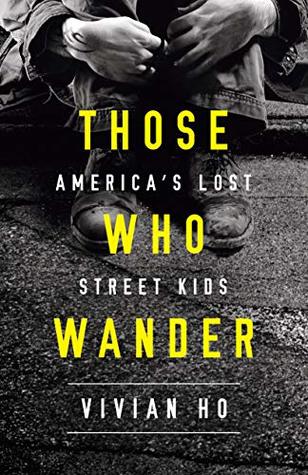More on this book
Community
Kindle Notes & Highlights
What I found, instead, were some incredible and fascinating human beings—human beings that so many of us pass every day on the streets without even a second glance. Human beings who, when they’re not being overlooked, are considered nuisances, blights on our neighborhoods, or worse. Human beings, each of whom has
their own unique and oftentimes heartbreaking story to tell—if only someone were to listen. If only we were to listen.
A “monster,” they called him, but before his attorney’s statement at the sentencing, few had stopped to consider what had made him this way. Few had stopped to consider what sort of life he had lived that had allowed him to deem it acceptable to rob two strangers at gunpoint, knowing full well that any misstep could end in bloodshed. Few had stopped to consider the sort of misfortunes that had shaped him into the type of young man who could witness up close the gore from one murder and still feel unaffected enough to pull the
trigger on a second human being just days later. And even fewer had stopped to consider that the misfortunes that had made Haze who he is today are the same ones that have driven countless kids to a life of aimless homelessness—that the demons that haunt Haze, Lila, and Sean are the same that haunt the youth we pass on the streets every day, squatting along city sidewalks amid a cloud of body odor and marijuana smoke.
You can’t pull yourself up by your bootstraps if you have no boots.
The more we reject them, Christian said, the more they reject us and their options become all the more sparse.
decades of our lives, we are socialized to reach certain milestones at a rapid pace, and then we are left with the rest of our lives stretching long and ominously ahead of us.
Christian knows very well that for far too many in San Francisco, addressing the issue of homelessness is more about figuring out how to make it less of an inconvenience for themselves than figuring out how to help those without homes.
“I think what people are fearful of are people they don’t understand,” Christian said. “I think they’re especially fearful
when a group of people they don’t understand gets together.”
Part of it is also that life on the streets is still better than a lot of alternatives. And beneath it all lies a desire we all share from time to time, no matter our walk of life: the desire to run away. To be free. To get away from what is bothering you.
All kids are guilty of bad ideas, and it is completely dependent on their level of privilege how irreversible and harmful those ideas end up
We criminalize their existence, making it illegal for them to sit or sleep or be. We donate our money to soup kitchens and homeless charities, but complain when we see someone panhandling in front of our establishments or using a public restroom.
We send
them the same message over and over again that they are not welcome. Their existence is a nuisance....
This highlight has been truncated due to consecutive passage length restrictions.
To survive as they do means losing the last of their humanity. On the streets, emotion is an extravagance that they cannot afford. If they allowed themselves to feel bad, they wouldn’t be able to do the things they need to do in order to live. It’s why we abhor this particular subset of the homeless population. We detest them because they are forced to operate outside our social norms of decent human behavior. We hate them because they survive in spite of their humanity. We hate them because they are us, at our basest, stripped of all we have holding us up as a society of human beings.
Not all wanderers are lost, but they are all searching for something. In the end, I realized that all so many of us are searching for, especially those who have been forced to wander for so long, is our proverbial cabin in Oregon. A place of
our own. A place where we are safe. A place where we can be, where we can rest. A place that no one can take.


